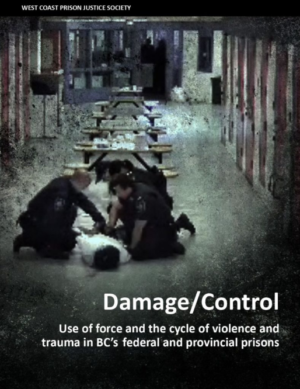We’re hiring!
LEGAL ADVOCATE
Prisoners’ Legal Services, Burnaby, BC
Prisoners’ Legal Services is looking for a passionate, problem solving, empathetic and dedicated advocate for prisoners’ rights, with a focus on liberty rights.
We are a small non-profit society providing legal services to federal and provincial prisoners in the province of British Columbia.
The legal advocate position involves providing advocacy to prisoners regarding prison legal issues. This work is primarily done by telephone, fax and email. Advocacy on behalf of prisoners may involve summary advice, informal advocacy, providing written submissions and personal representation at tribunals.
Legal advocates have conduct of client files and are responsible for ensuring day-to-day tasks are scheduled and performed within relevant timeframes. The job involves reviewing and determining the legal merit of cases and determining the level of service to be provided. Legal advocates work under the supervision of a lawyer.
Legal advocates have a great deal of contact with prisoners, prison administrators and parole authorities.
This position requires frequent travel to prisons in the Lower Mainland and Fraser Valley. Access to a vehicle is essential. A CPIC clearance is required to visit prisons.
Basic Qualifications:
- Post-secondary education in Law, Criminology, Social Work, Paralegal training or equivalent;
- Strong verbal, written and interviewing skills; and
- Experience in a legal environment or advocacy an asset.
Skills and Abilities
- ability to be a strong advocate for disadvantaged clients, including those with low income, those with mental health disabilities, and those whose first language is not English;
- ability to work well with others in a team setting;
- ability to negotiate and find creative solutions to prisoners’ legal problems;
- ability to exercise excellent judgment in matters of ethics and confidentiality;
- must have excellent communication and interpersonal skills, in particular in dealing with prisoners, lawyers, and prison and parole officials;
- must be familiar with general software applications (e.g. MS Word, Outlook);
- must be willing and prepared to assist those convicted of various crimes in a non-judgmental way; and
- second language or demonstrated awareness of the cultural diversity of prisoners an asset.
Salary: $52,847 (benefits after six months)
Closing date: August 14, 2020
Start date: September, 2020
Interested applicants should submit a covering letter and résumé outlining how their qualifications meet the position requirements to:
Jennifer Metcalfe, Executive Director
Prisoners’ Legal Services/
West Coast Prison Justice Society
Email: jmetcalfe@pls-bc.ca

